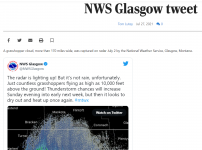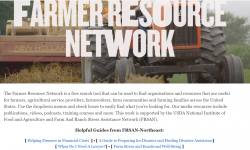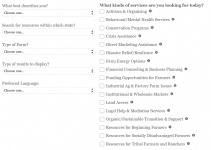Linda Poole
NCAT Regenerative Grazing Specialist
Last week, a couple of us from Soil for Water presented a webinar titled "Grazing for Resilience: Bouncing Forward from Catastrophic Events."
The topic of rebounding from natural disaster sure hits home with me. I and my neighbors are ranching through what some have called the perfect storm of dust: record high temperatures, a plague of grasshoppers (see below), and, at my place, only about four inches of rain in over a year. Prairie ranchers are tough, but this last couple years have pushed many to the very limits of strength and hope. Working on the webinar brought home to me that the biggest challenge for some of us is not drought, but despair. We need rain, yes, but even more we need hope. We need community, compassion, ideas, friendly shoulders to cry on at times. We might be able to get that from people nearby, but there's also a warm welcome right here for anyone seeking to build hope and resilience.
Please have a look at the webinar and then, if you would like, direct message me through the forum, email me (lindap@ncat.org), or better yet, post in this thread. We're here to listen. Whenever possible, we'll share resources. We'll always share compassion. You are not alone. Together we can grow hope! We're here for you!

The topic of rebounding from natural disaster sure hits home with me. I and my neighbors are ranching through what some have called the perfect storm of dust: record high temperatures, a plague of grasshoppers (see below), and, at my place, only about four inches of rain in over a year. Prairie ranchers are tough, but this last couple years have pushed many to the very limits of strength and hope. Working on the webinar brought home to me that the biggest challenge for some of us is not drought, but despair. We need rain, yes, but even more we need hope. We need community, compassion, ideas, friendly shoulders to cry on at times. We might be able to get that from people nearby, but there's also a warm welcome right here for anyone seeking to build hope and resilience.
Please have a look at the webinar and then, if you would like, direct message me through the forum, email me (lindap@ncat.org), or better yet, post in this thread. We're here to listen. Whenever possible, we'll share resources. We'll always share compassion. You are not alone. Together we can grow hope! We're here for you!







